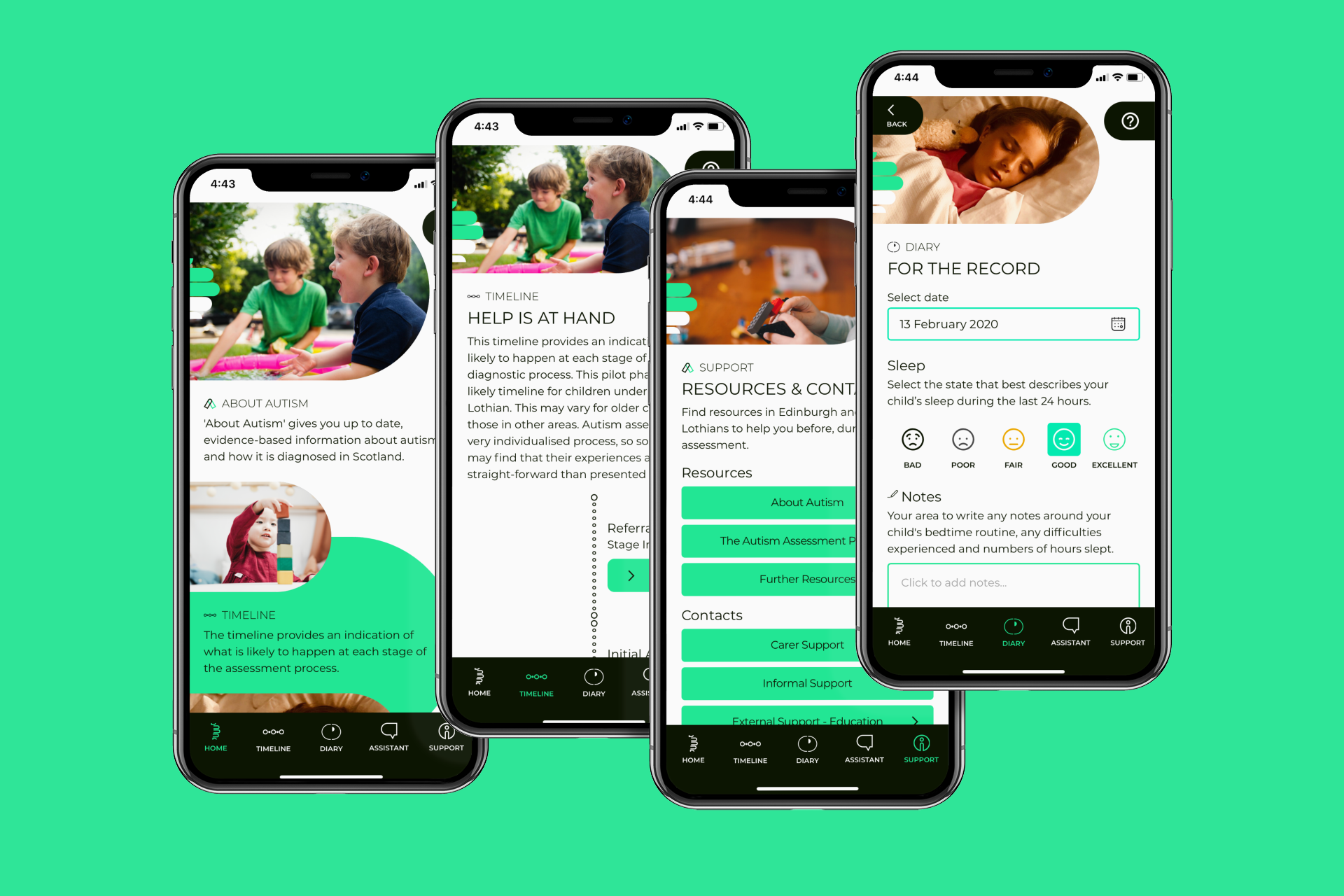New app could reduce stress around children’s autism assessment
The stress and anxiety of a potential autism diagnosis could be reduced by a new mobile phone app.
The new app – called Helping Hand – enables parents and carers of children who have been referred for assessment in Scotland to record relevant information – such as sleeping patterns and challenging behaviour – about their child.
Autism assessment can be complicated, lengthy and involve numerous professionals across a series of appointments and assessments.
Experts say the app could improve the process by giving clinicians a clearer insight into a child’s behaviour and thereby reduce the stress on parents, carers and children.
The app is currently being piloted in NHS Lothian but can be downloaded for free from all app stores and used by parents across Scotland.
Around 1 in 100 people in the UK receive a diagnosis of autism, with diagnosis usually taking place in childhood.
Research shows the average time from referral to diagnosis for children in Scotland is almost 11 months.
This delay is often attributed to clinicians not having all the information they need to make a decision.
Developed by the Salvesen Mindroom Research Centre at the University of Edinburgh, researchers say the app should better prepare parents and carers for appointments and allow them to present relevant information to their clinician.
The app also includes general information on autism and how it is diagnosed, as well as links to resources and support organisations to help prepare children for appointments.
The project is funded by Nesta and the Scottish Government and has been developed by the Salvesen Mindroom Research Centre alongside charity partner Salvesen Mindroom Centre. Parents who have autism have also been involved in shaping the app with parent-led organisation Colouring Outside the Lines and digital agency Intelligent Mobile.
Dr Louise Marryat, Research Fellow in Pediatric Neurodevelopmental Disorders and Learning Difficulties at the University of Edinburgh, said: “Our research is focused on creating new knowledge about learning difficulties and using that knowledge to design ways to enable people to thrive. Parents and carers told us they often find the autism assessment process stressful, describing it as like being ‘left in limbo’. This new app aims to lower stress levels by managing expectations about the process and giving parents and carers more control.”
Autistic self-advocate George Watts, who tested the app and is a parent of an autistic child, said: “Many parents are scared by the idea of their child being autistic and they often come across tragic stories which add to that fear. It can be hard to know where to turn for accurate information. This app has the potential to be truly empowering for parents going through this challenging time.”
Self-advocacy refers to people with disabilities taking control of their own lives, including being in charge of their own care in the medical system.
